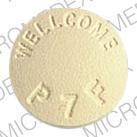Atovaquone Interactions
There are 93 drugs known to interact with atovaquone, along with 2 disease interactions, and 1 alcohol/food interaction. Of the total drug interactions, 9 are major, 80 are moderate, and 4 are minor.
- View all 93 medications that may interact with atovaquone
- View atovaquone alcohol/food interactions (1)
- View atovaquone disease interactions (2)
Most frequently checked interactions
View interaction reports for atovaquone and the medicines listed below.
- Adderall (amphetamine / dextroamphetamine)
- Ambien (zolpidem)
- Ativan (lorazepam)
- Bactrim (sulfamethoxazole / trimethoprim)
- Benadryl (diphenhydramine)
- CellCept (mycophenolate mofetil)
- Co-trimoxazole (sulfamethoxazole / trimethoprim)
- CoQ10 (ubiquinone)
- Cymbalta (duloxetine)
- Eliquis (apixaban)
- Fish Oil (omega-3 polyunsaturated fatty acids)
- Humalog (insulin lispro)
- Imodium (loperamide)
- Lasix (furosemide)
- Lexapro (escitalopram)
- Lipitor (atorvastatin)
- Lyrica (pregabalin)
- Metoprolol Succinate ER (metoprolol)
- MiraLAX (polyethylene glycol 3350)
- Prilosec (omeprazole)
- ProAir HFA (albuterol)
- Probiotic Formula (bifidobacterium infantis / lactobacillus acidophilus)
- Symbicort (budesonide / formoterol)
- Tylenol (acetaminophen)
- Ventolin HFA (albuterol)
- Vitamin B12 (cyanocobalamin)
- Vitamin C (ascorbic acid)
- Vitamin D3 (cholecalciferol)
- Zofran (ondansetron)
- Zyrtec (cetirizine)
Atovaquone alcohol/food interactions
There is 1 alcohol/food interaction with atovaquone.
Atovaquone disease interactions
There are 2 disease interactions with atovaquone which include:
More about atovaquone
- atovaquone consumer information
- Compare alternatives
- Pricing & coupons
- Reviews (6)
- Latest FDA alerts (4)
- Side effects
- Dosage information
- During pregnancy
- Drug class: miscellaneous antibiotics
- Breastfeeding
- En español
Related treatment guides
Drug Interaction Classification
| Highly clinically significant. Avoid combinations; the risk of the interaction outweighs the benefit. | |
| Moderately clinically significant. Usually avoid combinations; use it only under special circumstances. | |
| Minimally clinically significant. Minimize risk; assess risk and consider an alternative drug, take steps to circumvent the interaction risk and/or institute a monitoring plan. | |
| No interaction information available. |
See also:
Further information
Always consult your healthcare provider to ensure the information displayed on this page applies to your personal circumstances.


